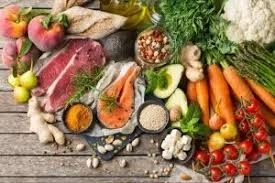
Nutrition for Cancer Patients: What to Watch For With Prof. Dr. Alaa
Published on: 2025-07-01 | Written by: Professor Dr. Alaa Kandil, Professor of Oncology
Prof. Dr. Alaa Kandil, Professor of Oncology, emphasizes that proper nutrition plays a crucial role in improving treatment response and minimizing side effects during chemotherapy or radiotherapy. A body receiving the right nutrients becomes more resilient and better able to recover.
In this article, Prof. Dr. Alaa Kandil outlines the essential dietary considerations for cancer patients and offers expert tips to support immunity and improve quality of life.
Why Is Nutrition Important for Cancer Patients?
Chemotherapy and radiation can significantly affect appetite and digestion, leading to weight loss, weakened immunity, and changes in taste. According to Prof. Dr. Alaa Kandil, proper nutrition helps to:
-
Improve treatment tolerance and effectiveness
-
Minimize treatment-related complications
-
Preserve muscle mass and strength
-
Promote tissue repair and immune function
Key Nutritional Components
Prof. Dr. Alaa Kandil recommends focusing on:
-
Proteins: Essential for tissue repair (e.g., chicken, eggs, fish, legumes)
-
Healthy Carbohydrates: Provide energy (e.g., oats, potatoes, brown rice)
-
Good Fats: Such as olive oil, avocado, and nuts
-
Fluids: To maintain hydration and counter treatment-related fluid loss
-
Vitamins and Minerals: From fresh vegetables and fruits to boost immunity
What to Avoid
According to Prof. Dr. Alaa Kandil, cancer patients should avoid:
-
Processed and fried foods
-
Excess sugar and carbonated beverages
-
Undercooked meats and unsafe food sources
-
Dietary supplements without medical advice
-
Large amounts of herbs or detoxes without supervision
Practical Tips for Cancer Patients
Here are some useful guidelines shared by Prof. Dr. Alaa Kandil:
-
Eat small, frequent meals instead of heavy ones
-
Choose easy-to-digest cooking methods (grilled, steamed, or boiled)
-
Prioritize food safety to reduce the risk of infections
-
Work with a clinical dietitian for a personalized nutrition plan
-
Avoid forcing meals—opt for light alternatives during nausea
Conclusion
Nutrition is a fundamental part of cancer care—not a luxury. As Prof. Dr. Alaa Kandil explains, a tailored and supportive diet not only enhances physical strength during treatment but also improves mood and reduces treatment-related side effects.

